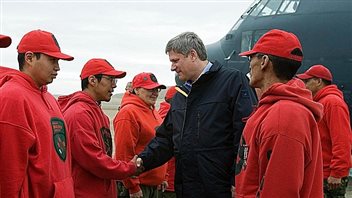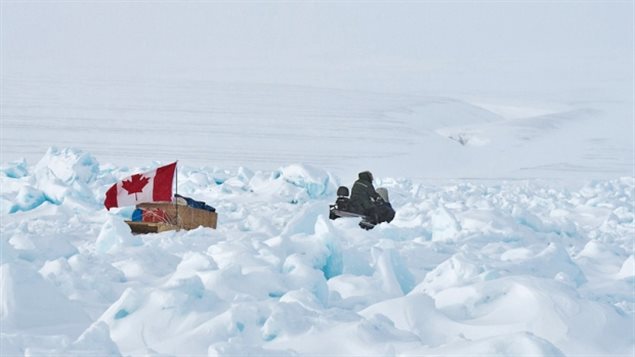Canada’s Department of Defence says only one of 49 deaths of Rangers since January 2011 is related to their duty of patrolling the Arctic. The rest it attributes to “health and hazard issues common in the larger population of the communities in which they live — such as accidents like drowning and health-related causes like heart disease and diabetes.” Statistically, there is a higher incidence of these and other diseases like HIV and tuberculosis among indigenous peoples in Canada.
The Rangers made headlines this week when the public broadcaster, CBC obtained documents about recent deaths among them through Canada’s Access to Information law.

Rangers provide highly valuable expertise
About 3,400 Canadian Rangers and Junior Rangers volunteer to be “the eyes and ears” of Canada’s north, a region as large as Europe but with a population of fewer than 80,000 people. They come from local communities and provide highly valuable expertise and training to Canadian Forces personnel, although they are not officially part of the armed forces or reserves.
“The Rangers today are a major element of Canadian security and sovereignty commitment to the north,” says Prof. Rob Huebert, a research fellow with the Centre for Military and Strategic Studies at the University of Calgary.
Change increases need for Rangers
“The arctic is changing. Climate change, resource development, geopolitics means that there is a level of activity that is now occurring that no one was really expecting and is continuing to increase,” says Huebert.
“That means that you need to have the capability of knowing what’s going on. And to that degree, the Rangers, because they’re found in the communities throughout the entire north, provide an ideal institution to provide that particular function.”
Chaplain notes ‘stress and other health issues’
In the document obtained by CBC, the chaplain noted that there have been “a significant number of deaths of Rangers and Junior Rangers over the past three years” and “due to accumulation of stress and other health issues, nine of 19 instructors…are unable to go on patrol,” wrote the chaplain. He added this means that other instructors are left to pick up the slack, which could lead to “potential burnout and frustration.”
The report went on to note that it has been identified that the “pyscho-screening process for isolated posting[s] …needs to be enhanced…”
Rangers fiercely proud
Huebert says the Ranger deaths reflect a higher level of risk faced by people living in the north, particularly because of climate change, a lack of infrastructure and emergency services. But he adds, no one should conclude the Rangers should be disbanded.
“The Rangers themselves are fiercely protective of their institution. You talk to any of them and they are so proud of being a Ranger and being connected to the protection of Canadian sovereignty and security in the north that even if you wanted, from a political perspective, to get rid of it, you’d face huge opposition in the north.”







For reasons beyond our control, and for an undetermined period of time, our comment section is now closed. However, our social networks remain open to your contributions.